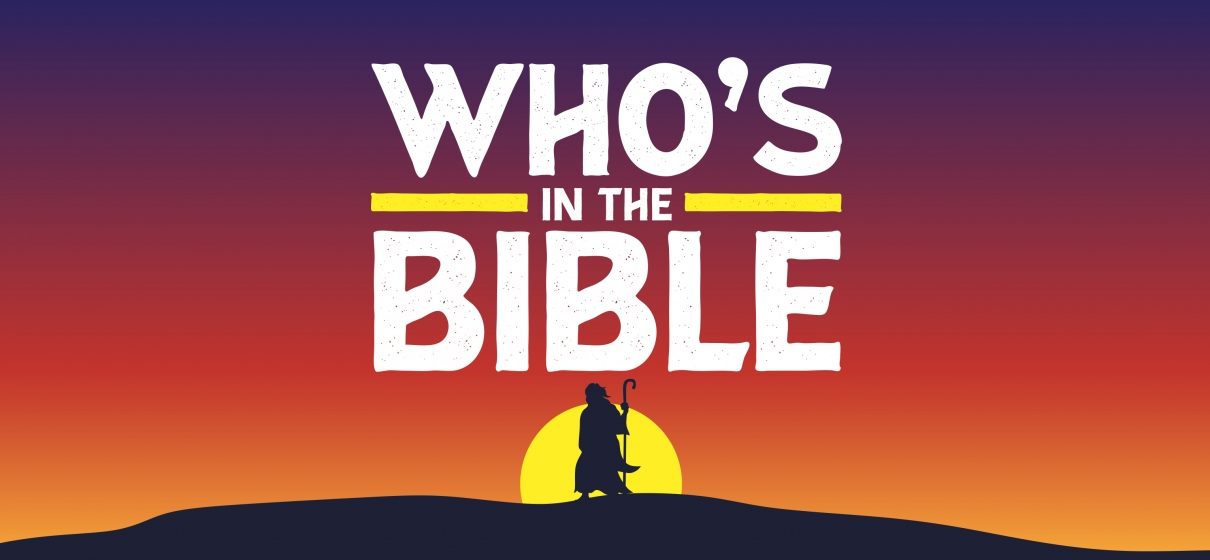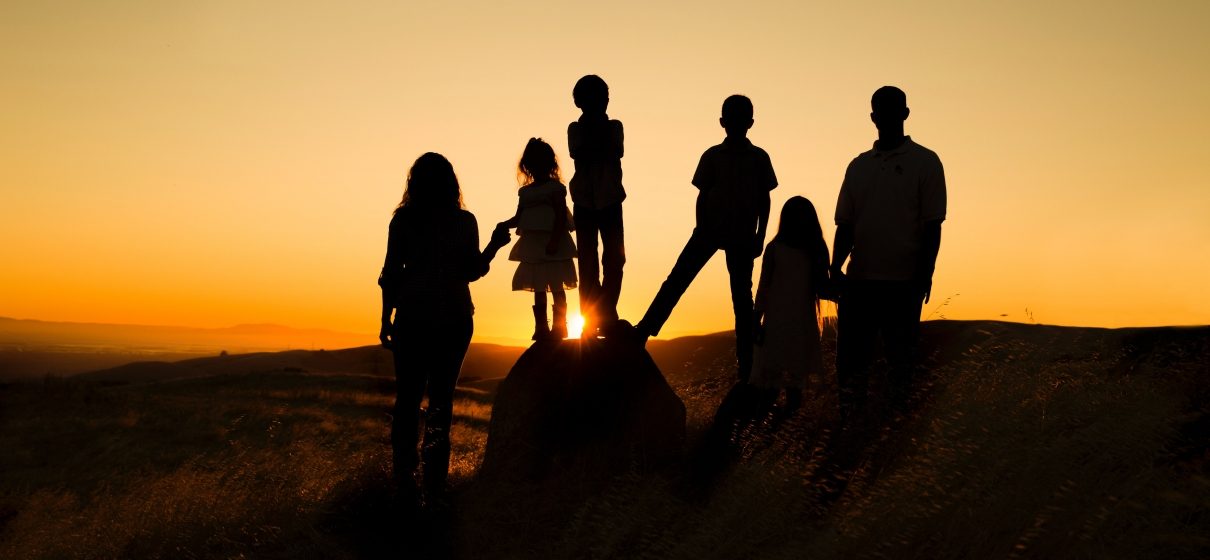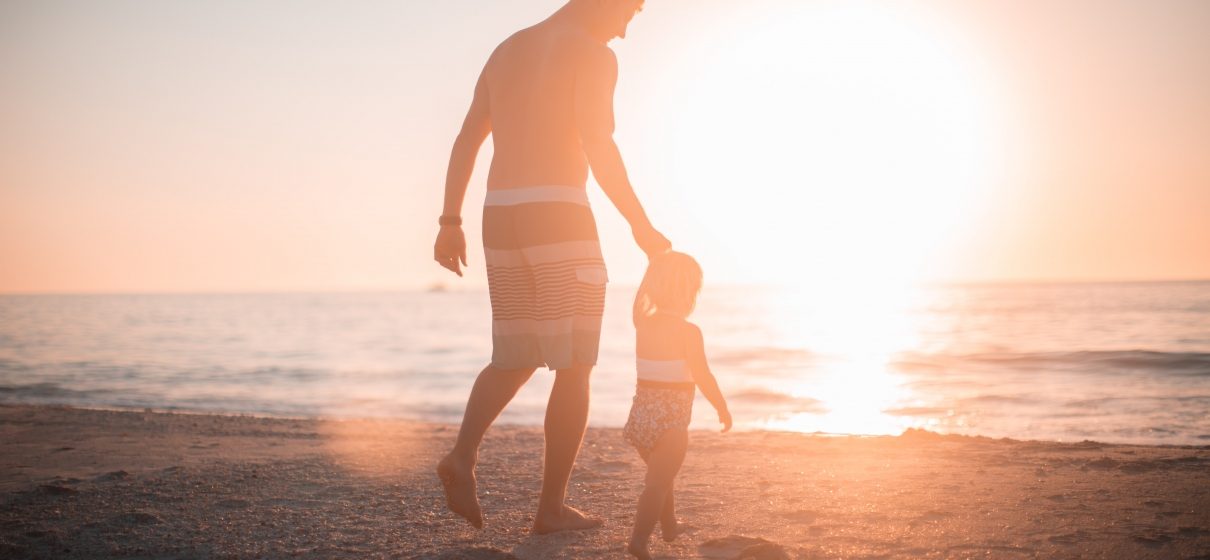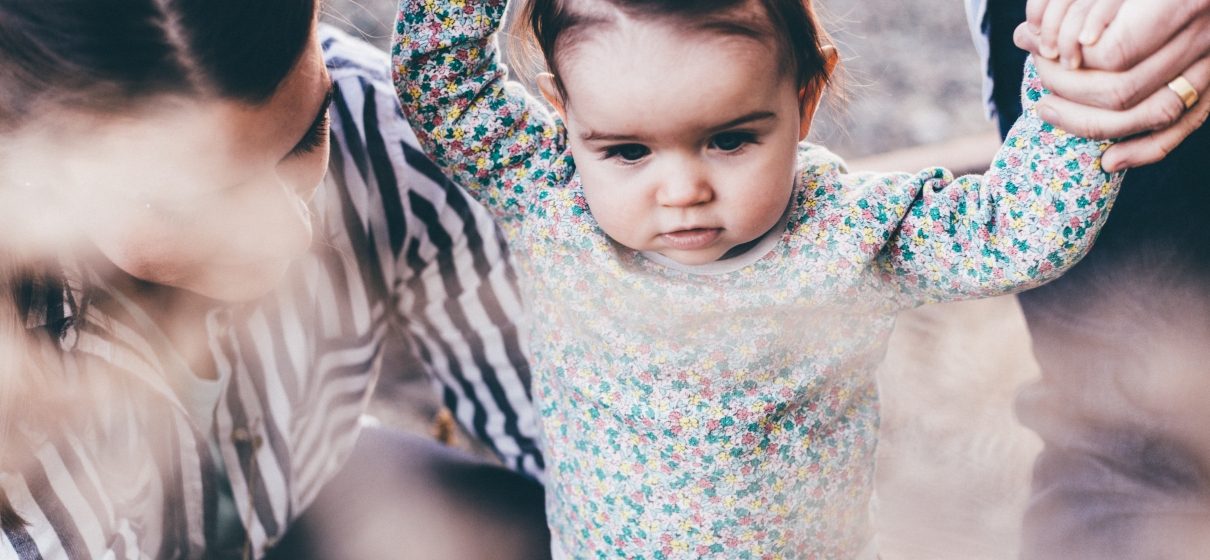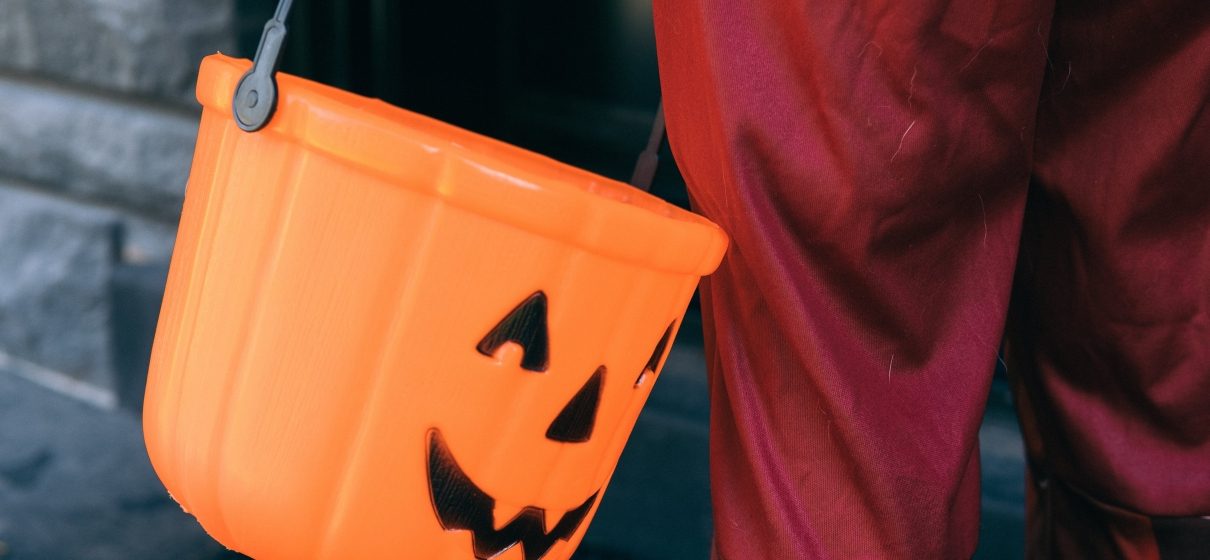075: Parenting Q&A with Chap Clark
We all want our kids to grow up with a faith they hold onto as adults. In January, Chap Clark spoke at the Clear Creek Forum on Parenting to share what we can do now to foster lasting faith in our kids’ hearts. While he was in town he sat down with Lance Lawson to answer some questions on the podcast that he didn’t have a chance to address at the event.
Resources:
What Kind of Adults Will Our Kids Be?
What Kind of Adults Will Our Kids Be?
Have you ever heard the quote, “Parents aren’t raising children, they are raising future adults”?
That kind of quote is what my friend Daniel calls “thinking material.”
It makes me wonder what kind of adults my kids will turn out to be. Will they be kind and generous? How will they define success? What mistakes will they make? Most importantly, will they know how much God loves them and will they devote their lives to him?
What kind of questions does it make you ask? What do you hope your kids are like as adults?
Being a parent is one of the most demanding roles in life. How many times have you heard a person without kids talk about how busy they are and think, If you only knew! Parents stay busy playing chef, chauffer, and social coordinator for their kids. The days turn into years, and somehow, the craziest phase of life speeds by and you’re left telling young parents, “Enjoy it. It flies by!”
The idea that my kids are future adults scares me a little. Not because I don’t have confidence in who they will become, but because I know how important my role in shaping them is. I know how consuming the day-to-day can be, and I don’t want to look back and wish I had been more intentional about things that matter after adolescence.
I bet some of you feel that too.
Here are three commitments I made years ago that I hope keep my eyes looking to the future adults my kids will be.
HAVE AWKWARD CONVERSATIONS
Kids are curious. Their questions start out harmless enough. “Where does the toilet water go when you flush it?” or “Why do you have hair under your arms?” Before long it’s “Why are some people mean?” and “Where do babies come from?”
How you handle those questions will determine what your kids do with more mature ones like, “Does God hate my gay friend?” and “Does evolution disprove God’s existence?”
In our house, no topic of conversation is off limits. We keep the content of conversations age appropriate, but we are committed to talking to our kids about anything and everything. They know they can ask us any question they have. Sometimes it can be awkward, but it’s worth it every time.
The truth is, kids will seek out answers to their questions somewhere. They’ll turn to Google, friends, or a teacher. I want my voice to be part of the chorus of voices influencing what they think and believe about things.
Kids want to know about sex, money, politics, racial tension, gender issues, and why some of our beliefs push against popular world views. They have questions about what they see online and what they hear their friends talking about.
If you aren’t talking to your kids about these things, who is doing it for you?
DON’T STOP LEARNING
No parent has all the answers. There are great, godly resources available that continue to shape me as a parent, as I work to shape my kids into adults. Staying connected to great resources helps to fill the gaps in my parenting.
Also, the world our kids are growing up in is very different than the world we grew up in. And it’s changing all the time. We don’t have to know every detail about every new thing out there, but keeping our finger on the pulse of adolescent culture and trends keeps us informed enough to be engaged.
I like resources like Common Sense Media, Parenting, and Sticky Faith. Also, Clear Creek is hosting a parenting forum this week! You can register here.
PRAY FOR YOUR KIDS DAILY
Even if we managed to parent perfectly, kids will make their own choices and go down their own path. Ultimately, if our kids are going to know God’s great love for them, he has to be the one to open their hearts to it.
Clear Creek’s Lead Pastor, Bruce Wesley, has talked about how he used to pray through Ephesians 3:14-21 with his daughters in mind. This passage is a great place to begin.
Talk to God about your kids. Ask for his help as a parent. Ask for his presence in their lives. Ask him to do in their lives what only he can.
Our children will grow up and have families of their own. They will vote, they will shape the world, and hopefully, they will be our brothers and sisters in Christ.
What commitments can you make now that might influence their future adult selves?
28: 2020 – Why Do Bad Things Happen?
Aric and Lance close out 2020 with a question most of us wonder about at times: why do bad things happen?
27: David & Goliath
A fight between an armored warrior and a shepherd boy with a hiking stick and sling doesn’t seem fair. But what if we’ve been focused on the wrong details in this Old Testament story? What if the story of David and Goliath is really a story about Saul? Find out more in this episode of Who’s in the Bible.
26: Saul
25: Samuel
On this episode of Who’s in the Bible? we meet a boy named Samuel, a man named Eli, and we learn God’s name.
If you haven’t listened to episode 23 (Judges), you may want to go back and hear that part of the story before you listen to this one.
24: Ruth
Mistakes We’ve Made and Lessons We’ve Learned as Parents
My wife and I have been married for almost 15 years and have three elementary-age kids (two boys and a girl). But we aren’t experts at marriage, parenting, or life by any stretch of the imagination. In fact, we feel like we are just getting started.
Over the past three years, we have had the privilege of sitting down with numerous couples in Clear Creek’s Expectant Parents class. Our conversations have been centered on how we, as followers of Christ, can strengthen our marriages once we bring home that precious new life. These conversations have been refreshing, reminding us of the joy and anticipation we felt entering into the new stage of parenthood. But, they’ve also been humbling, reminding us of our constant shortcomings as spouses and parents.
Here are just two examples of our many mistakes and what we’ve learned through them that we hope will be a blessing to you and your family:
1. Thinking we will outgrow selfishness
When we were first married, we quickly became aware of how selfish we were as individuals. This is no surprise to anyone who is married. No longer could we do things exactly how we liked. We had to make concessions to our preferences, like how to load the dishwasher or how to spend our evenings. But after a few arguments which usually ended in laughter, we quickly adjusted and moved on happily enough. However, when we became parents, we were blindsided by the awareness that we were still so selfish.
Before our first baby was born, we could eat out as often as our budget allowed and watch movies without interruption. Bringing a baby home disrupted the idea that we had outgrown our petty and selfish ways.
As God so often does, he kindly spoke truth to us through his word and through his people in the form of wise counsel. We began to hear him say, as he had when we first followed him, “If anyone wants to come after me, let him deny himself and take up his cross and follow me” (Matthew 16:24). We were again reminded that our Father had called us to love and serve his family and our little family as well.
As our babies turned into toddlers, who turned into preschoolers, we would hear ourselves say quite often to them, “You don’t always get what you want,” or “You can’t have it all. You have to share.” Those words, spoken daily to a four-year-old regarding a Goldfish snack or an eight-year-old regarding device time, are the same words that we hear our Father speak to us as parents.
Each day we get to choose whether we will scream like the four-year-old who does not get her Goldfish or whether we will let go of our expectations and follow him.
2. Thinking we will lead our kids spiritually without being intentional
At the time our first baby was born, we were both connected at church, attending small group, and serving to lead unchurched people to be fully devoted followers of Christ. If we had been asked about our priorities in raising our newborn, sharing God’s grace and love with him would have been at the top of the list.
By the time our third child was born, we were in the same position, actively engaging with our Top Five and leading a small group. However, something was different in our home. All of a sudden, and before we realized it, our children could walk, talk, understand, and engage.
We realized that we had spent years talking around our kids about God and his work in our lives, but we hadn’t been intentional about talking to our kids about God and his work in our lives.
For years we had hosted small groups every week in our home both for high school students and for adults. But, for our children, the extent of their small group experience was the frantic cleaning of our home the minutes before guests arrived, the shoving of them into their rooms, and the fleeting aroma of snacks which they rarely tasted.
Once again, God, in his kindness, showed us that we needed to be intentional in discipling our kids if we were going to raise them in a way that demonstrated he was important to us. Discipleship would not happen on its own.
We realized that each day, we can let the moments slide past all too quickly, or we can choose to set aside time to intentionally lead and disciple our children.
We continue to be witnesses to these daily mistakes as well as many others in our own parenting. We humbly recognize that without consistent and daily prayer as a couple, we will fall into the traps of selfishness and of unintentionality.
In our class, we have shared our stories of arguments, fears, mishaps, and frustrations with expectant couples, in hopes that our stories would bring encouragement to people approaching their own parenting adventures.
One of the things we have learned, and continue to learn, is that parenting is refining. We, as parents, have made, and continue to make, mistakes. We are continually reminded of the call to repent and believe the good news of Jesus Christ. Even through the difficulties of parenting, God is drawing us to himself and giving us rest in the work he has already performed.
6 Questions About Halloween for Christian Families
Amidst COVID-19 and the craziness that has been the year 2020, it’s hard to know what trick-or-treating will look like this weekend. But even before the global pandemic changed the way we thought about going out in public, many people had questions about Halloween, and whether or not Christians should take part in the festivities.
Last year, three of Clear Creek Community Church’s campus pastors, who are also fathers to young children, sat down to record an episode of the Clear Creek Resources Podcast discussing Halloween and what it means for followers of Jesus today.
Here are a few of the questions they tackled and their responses:
Is it okay for Christians to celebrate Halloween?
Aaron Lutz: “The benefit of asking the question is that people are trying to think theologically – think biblically – about whether they should or they shouldn’t. And so they’re essentially asking the question ‘How can I honor Jesus and celebrate Halloween?’”
AL: “In 1 Corinthians 10:31, Paul says ‘So, whether you eat or drink, or whatever you do, do all to the glory of God.’ So, Can I celebrate Halloween to the glory of God? Or, Should I abstain from celebrating that to the glory of God?”
Where does Halloween come from and should its origins impact the way Christians view it?
AL: “Halloween actually has roots both with pagan and Christian influences. Most historians agree that Halloween has its origins in a Celtic festival known as Sauin [also called Samhain]. And so it kind of marked the transition from this time of harvest with light and warmth and summer, to now, this fall/winter season of cold and darkness, which they associated with death. So the Celtic view was that the spiritual and physical realms kind of overlapped in that night… And so because of that, these people would put on masks and light bonfires to kind of scare the evil spirits away. That was over 2,000 years ago.”
AL: “In the fourth century, the Church started honoring martyrs on what is October 31. And so, by the seventh century, the Pope actually named November 1, ‘All Saints’ Day’ or ‘All Hallows’ Day.’ And so therefore, October 31 became ‘All Hallows’ Eve,’ or now what we call Halloween.”
AL: “Fast-forward to where we are today. Halloween is the second largest commercial holiday in America, right behind Christmas. So, a long time ago, it had some roots in paganism, then had some Christian tradition thrown in there. And now it seems to just be a commercial holiday.”
Ryan Lehtinen: “For the average person, they see it as something fun to go do and be a part of. Which, you know, if you look at the history of other holidays like Christmas and Easter – while today they look much different in their glorification of Jesus – they have similar historical backgrounds where there’s a mixture of paganism and Christianity, as the Christian church sought to reclaim some of those dates and really glorify God in those ways.”
Doesn’t Halloween celebrate death, demons, and evil? What do we do about that?
Lance Lawson: “What comes to mind is a passage we talk about a lot around here: The Great Commission (Matthew 28:18-20). ‘Go therefore and make disciples…’ Well, Jesus started that statement by saying, ‘All authority in heaven and on earth has been given to me.’ Jesus has overcome all of that. He’s overcome death and sin and darkness and evil. They aren’t something we should celebrate. We shouldn’t glorify those things, because we’re followers of Jesus. And we also don’t have to worry about that.”
LL: “And as far as how we teach our kids to participate in Halloween, I think we steer them away from celebrating death. And even, maybe in the way we decorate for Halloween, and how we participate in the weeks leading up to that can teach our kids what we think about darkness and death, and what we really believe about the way Jesus has overcome those things.”
What about the over-sexualization of Halloween? What can we do about that?
AL: “Man, teenagers and college students, young adults and older adults have turned Halloween into parties that are just the glorification of sex, and how you can turn any costume into a sexualized costume. And I think there’s probably more danger in a culture that’s obsessed with sex, that is given to lust, than maybe a culture that would lean towards celebrating Satan or evil.”
LL: “I think with dressing up, we have to be careful. Just because we’re going to a party that has a start and an end doesn’t give us an excuse to behave differently than Jesus would want us to behave any other hour of the day or any other place we would go. So Halloween and dressing up, those things are not a break from following Jesus.”
How can parents navigate Halloween with their kids who want to dress up?
AL: “My six-year-old daughter sees decorations in the neighborhood of skeletons and ghosts and all that, and is asking questions like, ‘Can I be a witch?’ Or ‘Can my brother be a skeleton?’ And so I’m asking her the question, ‘What is the purpose of Halloween for you? Like, what do you want to do?’ She just wants to trick-or-treat and go get candy. So I’m like, ‘Why dress up as something that is potentially evil, or glorifying death (I mean, I don’t use that language)?’ But, just helping her understand that this is just fun. ‘Let’s be something cute and fun.’”
LL: “Yeah, my boys are a little older, and so they like superhero stuff and Star Wars. That tends to be a pretty easy deal in my house. But a couple of years ago, my daughter, who’s six right now, wanted to be Moana. So, we ordered a costume off of Amazon I think, and when it showed up and she put it on, we realized, like, This shows way too much. It was the way the costume was cut and the way it fit her. So, we made a decision in that, not to let her wear that costume, and to find something different for her, for the same reason that we don’t let her wear bathing suits that show too much of her body at a young age. Like, we don’t want her to do that when she’s older, so why would we have her do that now? It’s just an awareness and trying to teach modesty at a young age for both our boys and our daughter.
Aren’t Christians supposed to be set apart? Why bother with Halloween at all if there’s any question that it might be bad?
LL: “I would say you’re missing out on an opportunity. I’ve met more neighbors on Halloween night than any other single night of the entire year… By not participating you’re missing a chance to get to know the people that we’re called to love.”
AL: “At some level, we’re in this culture, and we need to figure out how we interact with it. So, what’s the best way I can love my neighbor by being part of this culture? I think part of that can be participating in Halloween, by engaging your neighbor.”
RL: “I think there is an element of discerning and thinking about the context that you live in, and how the people around you – how your neighbors – think about whatever they’re asking you to participate in. So, when they’re asking you to go and trick-or-treat, in their mind, they’re not asking you to go be a part of a séance, or anything like that – anything demonic. They’re really asking you to go do something that’s fun and neighborly, in a way that they can engage with you.”
AL: “[In 1 Corinthians] Paul is basically saying, ‘Listen, there’s no demon meat. Meat is meat! And God created it for good. So, you can celebrate that without celebrating the pagan part of it.’ And, in the same way, with Halloween or a holiday, there is no demon holiday, if you will. God has overcome that. He’s in control. God is the author of joy, he’s the author of celebration. So, can we honor God and be joyful in celebrating a holiday? I think we can.”
To hear the full conversation, listen to the Clear Creek Resources Podcast episode 010: Porch Light On or Off? Should Christians Celebrate Halloween?

